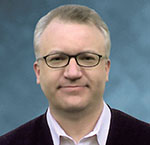Bill Siwicki
“We have had the most success with the communication between the patients and the surgeon’s staff to keep the rehabilitation progression moving forward,” a rehab coordinator says.
Innovation
Three experts from different areas of the health IT field discuss how artificial intelligence is going to play a larger role in the year ahead.
The NYU School of Medicine’s technology enables radiologists to see images the way they currently see them, then, if they deem necessary, ask the AI for its opinion. Results to date are impressive.
Automated sig translation system created time savings of 34 hours per month for clinicians, translating into about $11,000 in recaptured nursing productivity over 12 months. Further, 30-day readmission rate fell from 6.2% to 5.5%.
Emerging Technology
These trends in the new year ahead will see healthcare provider organizations innovating solutions and practices to improve healthcare, one expert predicts.
The Community Hospital of the Monterey Peninsula combines technology and teamwork to tackle the opioid crisis, seeing more than a 50% decrease in the number of narcotic pills prescribed at local primary care clinics.
A cybersecurity expert discusses how digital risks and the needs of patient care turn health data into a liability, and that CIOs and CISOs must treat data as a living, breathing entity.
At Froedtert & The Medical College of Wisconsin, 70% of patients complete a full interview, and 30% initially seeking out high-cost forms of care are redirected to lower, condition-appropriate forms of care.
In 12 months at Penn State Health, telemedicine has resulted in travel savings of more than 8,780 miles, high patient satisfaction and reduced burden, and expansion of specialty care management programs.
For a variety of reasons, ransomware is difficult to comprehensively research, the expert notes. But he offers a look into the problem and has some advice for CISOs, and other security professionals.
